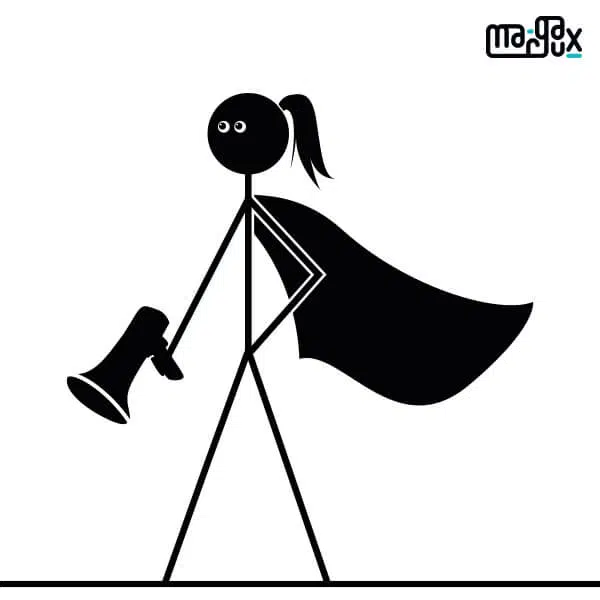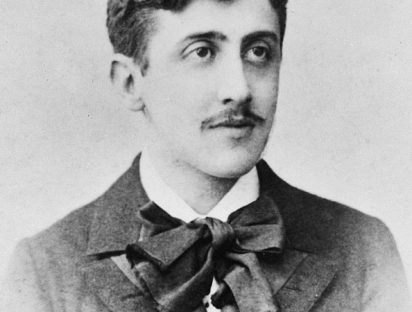Facebook whistleblower Frances Haugen describes herself as “an advocate for public oversight of social media” (1). This statement, like other descriptions she offers to explain her decision, is a way of qualifying the role of whistleblower. In this regard, it is noteworthy that she does not mention the fact that she is a woman, although, on the one hand, this fact was mentioned in an article of 6 October 2021 presenting short biographies of female whistleblowers (2), and, on the other hand, academic works have given it a significant place. We discuss this absence in the present article.
1.
Elements of Frances Haugen’s story
Beyond the general description of her self-assigned role as a whistleblower (“an advocate for public oversight of social media”), Frances Haugen elaborated on her motivations and mindset (3). She spoke of, among other things:
(a) her selflessness (“I never wanted to be a whistleblower. But lives were in danger”);
(b) her sense of duty (“she came to believe that people outside the company, including lawmakers and regulators, should know what she had discovered”)
(c) her concern for rule-following (“she prides herself on being a rule-follower”);
(d) her willingness to help her company prevent this from happening (“she wanted to help Facebook prevent its own users from going down similar paths”) without a desire to harm it (“The Facebook whistleblower, Frances Haugen, says she wants to fix the company, not harm it”);
(e) her frustration “by what she saw as the company’s lack of openness about its platforms’ potential for harm and unwillingness to address its flaws”;
(f) the lack of control over certain activities within the social network;
(g) the importance that a risk assessment should have;
(h) its belief in the power and rights of shareholders.
She also stated that she had done (i) what she thought was “necessary to save the lives of people, especially in the global south, who […] are being endangered by Facebook’s prioritisation of profits over people.” Finally, she formulated this sentence, in counterfactual form, giving the immediate cause of her decision to alert the Securities and Exchange Commission:
(j) “If I hadn’t brought those documents forward that was never going to come to light” (4).
Among these considerations, one can discern essential elements in defining the role of a whistleblower, in particular disinterestedness, good faith, concern for public safety and the desire to prevent harm (5).
Other considerations of a biographical nature have also been put forward. They are not directly related to the role of whistleblower, but concern the reasons for and the manner in which Frances Haugen assumed her role:
(k) the break-up of a friendship with someone who had helped her when she was ill, but whose mind had been disturbed by his use of social networks (“It’s one thing to study misinformation, it’s another to lose someone to it”);
(l) the fact that she sought advice from her mother, who is a pastor in the Episcopal Church (“She talked about her concerns with her mother, the priest, who advised her that if she thought lives were on the line, she should do what she could to save those lives”);
(m) the fact that she didn’t “like being the centre of attention” (“We have intentionally not been doing many interviews, because it is not about me, it’s about the documents”).
2.
Gender-based arguments: loyalty and care
Perhaps a detailed analysis of Frances Haugen’s words would allow the construction of a gender-based argument. Such an argument could answer, for example, the basic question raised by C. Fred Alford in an article on whistleblowers:
“Do [women] differ from men who blow the whistle?” (6)
For Alford, there is such a difference. It can be seen in the protagonists’ accounts of their decision – “women whistleblowers talk differently about their experience than men.”
Men use the concept of loyalty. In particular, they feel the need to justify the lack of loyalty they have shown in blowing the whistle. The object of this loyalty is their own organisation, but when justifying, they invoke the same concept in relation to “abstract principles” such as truth. This is, according to Alford, “a way to continue to value loyalty while rejecting the claims of particular loyalties.”
Women, on the other hand, do not use this concept in a privileged way. In their accounts, it is care that dominates. They talk about it in the impersonal, competitive context in which they work:
“Women do not talk about loyalty nearly as much as men. They don’t use the term nearly as much, and it seems to me that the concept is similarly lacking, though one might argue that its close relatives are present. Not loyalty, but the problem of caring for others in a world in which no one seems to care for anyone, but only money, is the language that many women whistleblowers use to discuss their experience.”
Alford refers to care. He quotes Carol Gilligan (7), who emphasised that, faced with a moral dilemma, women would focus on the particular human relationships and obligations at stake in the situation rather than the general principles that should govern it – an approach attributed to men. But Gilligan’s distinction is not clear from the interviews conducted by Alford.
More generally, her reference to care is not intended to distinguish an ethical approach that would be widely practised by women. Rather, it should be understood as the frustration that women have experienced because they have not been able to demonstrate care prior to blowing the whistle. According to Alford, the presence of care in their stories expresses their experience of living in two separate worlds, one outside the life of their company in which they can show care for others, and one inside the company where this is, in practice, impossible:
“The women I spoke with indeed talked in terms of care, but it wasn’t primarily in the context of wanting to know the obligations and responsibilities inherent in the situation they found themselves in at work. None talked in terms of how they might care for their colleagues who had lost their moral way, for example. Instead, they spoke in terms of deep frustration that the environment in which they worked did not allow them to practice the care for others that they practiced at home. Dividing themselves between worlds, often for years, they could no longer practice care in one world, carelessness in another.”
Alford makes it clear that whistleblowing itself is not, as such, a manifestation of care, but a liberation, the restoration of the possibility of caring again:
“[Many] women have been so torn for so long about working in an environment in which caring was impossible that they feel relieved at being able to care again, almost as if they had to put the impulse to care for anyone on hold, as they could no longer manage the splitting involved: care at home, don’t care at work. One might argue that in blowing the whistle, these women finally feel liberated to care for those they work with and for. The story of Sherron Watkins could be read this way. But this was not my impression. Rather, speaking out somehow heals the split between caring and uncaring self, and it is this that is liberating.”
3.
Role emergence and gender influence
Alford’s arguments do not seem to be applicable to Frances Haugen’s account, which was summarised in section 1. Perhaps point (d) (“she wanted to help Facebook…”) could be interpreted as evidence of care activity, but the considerations we have outlined – points (a) to (m) – do not, in our view, allow for a difference in motivation, mindset and manner of action between male and female whistleblowers. The following statement by Frances Haugen is emblematic of the difficulty of offering a gender interpretation:
“If people just hate Facebook more because of what I’ve done, then I’ve failed. I believe in truth and reconciliation – we need to admit reality.” (8)
This statement characterises the role of the whistleblower, not the gender of the person taking on that role. It leads to the assumption that, with the definition of the social role of the whistleblower now established, gender distinctions have lost their relevance.
This hypothesis applies to whistleblowers who, like Frances Haugen, offer a narrative of their deliberation. But there is academic work that looks at the effect of gender on the deliberation that precedes the decision to blow the whistle. For example, an article in Fortune magazine suggests that three characteristics of women in business roles (a lower tolerance for risk than men, particularly a rejection of shenanigans and grey areas; a tendency to care about those in vulnerable positions; and the fact that women in senior positions remain outsiders in the sense that they are not part of male power networks or boys’ clubs) may increase the likelihood that they will adopt the role of whistleblower (9). But once this role is adopted, the very concept of role seems to take precedence in the narratives over other considerations, including those of gender.
Alain Anquetil
(1) See Frances Haugen’s website.
(2) “5 times when women whistleblowers like Frances Haugen spoke up for what’s right,” The Story Exchange , 6 October 2021.
(3) The sources are as follows: “Who is Facebook whistleblower Frances Haugen? What to know after her Senate testimony,” The Wall Street Journal, 6 October 2021; “The Facebook whistleblower, Frances Haugen, says she wants to fix the company, not harm it,” The Wall Street Journal, 3 October 2021; “Frances Haugen: ‘I never wanted to be a whistleblower. But lives were in danger’,” The Guardian, 24 October 2021.
(4) “Frances Haugen: ‘I never wanted to be a whistleblower. But lives were in danger’,” op. cit.
(5) See for example my article “What is the meaning of gratitude to whistleblowers?” of 30 September 2019, in which I discuss the social role of the whistleblower.
(6) C. Fred Alford, “Women as whistleblowers,” Business & Professional Ethics Journal, 22(1), 2003, pp. 67-76.
(7) C. Gilligan, In a different voice: Psychological theory and women’s development, Harvard University Press.
(8) “The Facebook whistleblower, Frances Haugen, says she wants to fix the company, not harm it,” op. cit.
(9) “Are women more likely than men to be whistleblowers,” Fortune, 2 October 2014.





